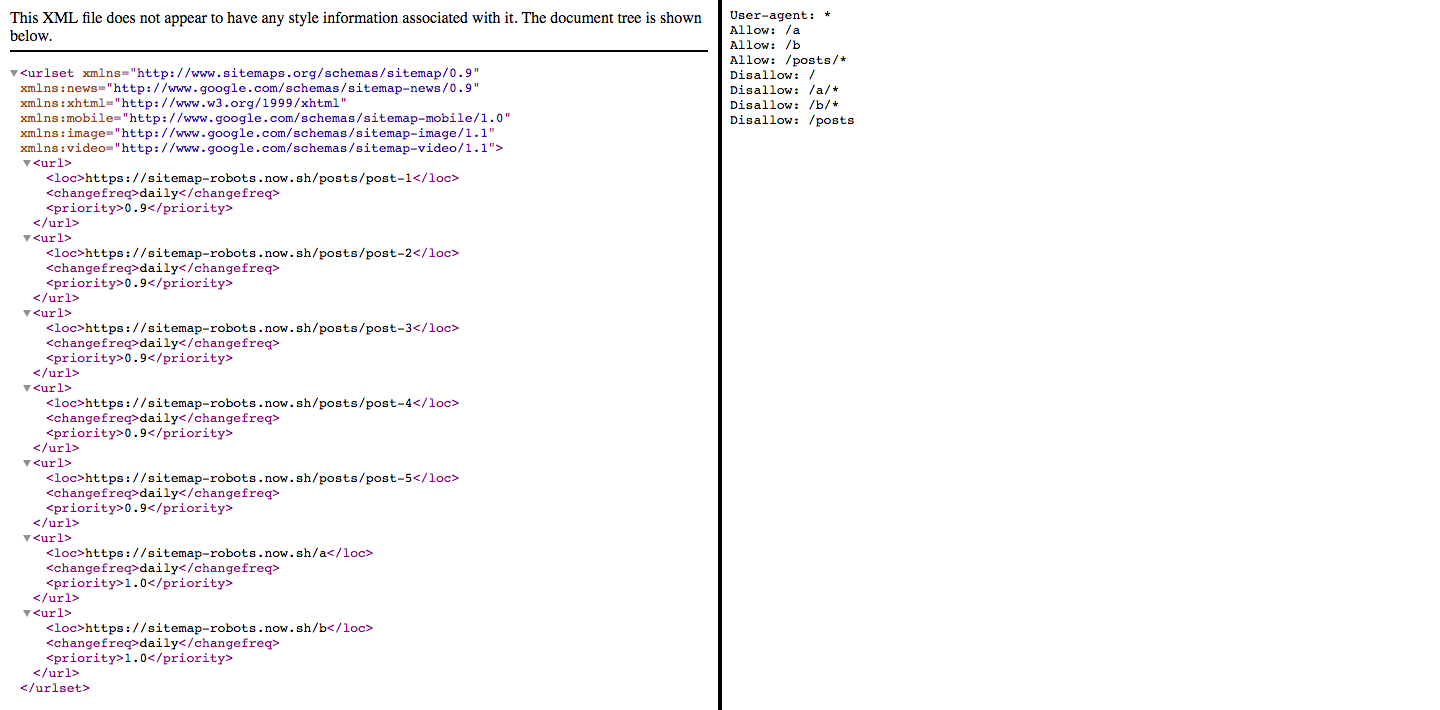Pulling out a few core points from the readme... This example builds from /src into /dist, managing the different expectations of express.js (es5, commonjs) and next.js (es6) by using a pair of tsconfig.json files, both of which are run by `npm run build-ts` or any of the other npm targets. Hot module reloading is largely but not completely wired up (nodemon is watching /dist but tsc isn't set up to watch /src and transpile changes in /src to /dist automatically (that's mainly because I wasn't sure how to start both nodemon and a pair of tsc watchers and be confident all would get shut down when the user killed dev mode). The readme suggests running `npm run build-ts` manually in another window to push changes from /src into /dev and on into the browser. tslint is also wired up via `npm run tslint`
3.7 KiB
Example with sitemap.xml and robots.txt using Express server and typescript
How to use
Using create-next-app
Execute create-next-app with Yarn or npx to bootstrap the example:
npx create-next-app --example with-sitemap-and-robots-express-server-typescript with-sitemap-and-robots-express-server-typescript-app
# or
yarn create next-app --example with-sitemap-and-robots-express-server-typescript with-sitemap-and-robots-express-server-typescript-app
Download manually
Download the example:
curl https://codeload.github.com/zeit/next.js/tar.gz/canary | tar -xz --strip=2 next.js-canary/examples/with-sitemap-and-robots-expres-server-typescript
cd with-sitemap-and-robots-express-server-typescript
Install it and run:
npm install
npm run dev
# or
yarn
yarn dev
Deploy it to the cloud with now (download)
now
The idea behind the example
This example app shows you how to set up sitemap.xml and robots.txt files for proper indexing by search engine bots.
The app is deployed at: https://sitemap-robots.now.sh. Open the page and click the links to see sitemap.xml and robots.txt. Here is a snapshot of these files, with sitemap.xml on the left and robots.txt on the right:

Notes:
- routes
/aand/bare added to sitemap manually - routes that start with
/postsare added automatically to sitemap; in a real application, you will get post slugs from a database
When you start this example locally:
- your app with run at https://localhost:8000
- sitemap.xml will be located at http://localhost:8000/sitemap.xml
- robots.txt will be located at http://localhost:8000/robots.txt
In case you want to deploy this example, replace the URL in the following locations with your own domain:
hostnameinsrc/server/sitemapAndRobots.tsROOT_URLinsrc/server/app.tsSitemapat the bottom ofsrc/server/robots.txtaliasinnow.json
Deploy with now or with yarn now if you specified alias in now.json
Typescript notes
express.js and next.js require slighty different forms of javascript (es5 vs. es6, es6 modules vs commonjs modules, that sort of thing) so there are two tsconfig files that are used to generate the appropriate *.js and *.jsx files in dist from the *.ts and *.tsx files in src (tsconfig.next.json and tsconfig.server.json). Any files under /src/server are assumed to be for express, any other files under /src are assumed to be for next. To keep things simple the two typescript transpiles using these two config files are run directly from npm commands in package.json so all you need to run the example are simple commands like
npm run start
or
npm run dev
This example has most of the hot module reload plumbing setup for both express- and next-related source files when you use npm run dev but it's currently only watching the *.js and *.jsx files in /dist for changes. You will need to manually npm run build-ts in another window to transpile your modified typescript files in src into the watched javascript files in dist (it should be possible to have tsc watch the src folder and auto compile on save but that isn't wired up yet in this example). This example does also have tslint support though npm run tslint.